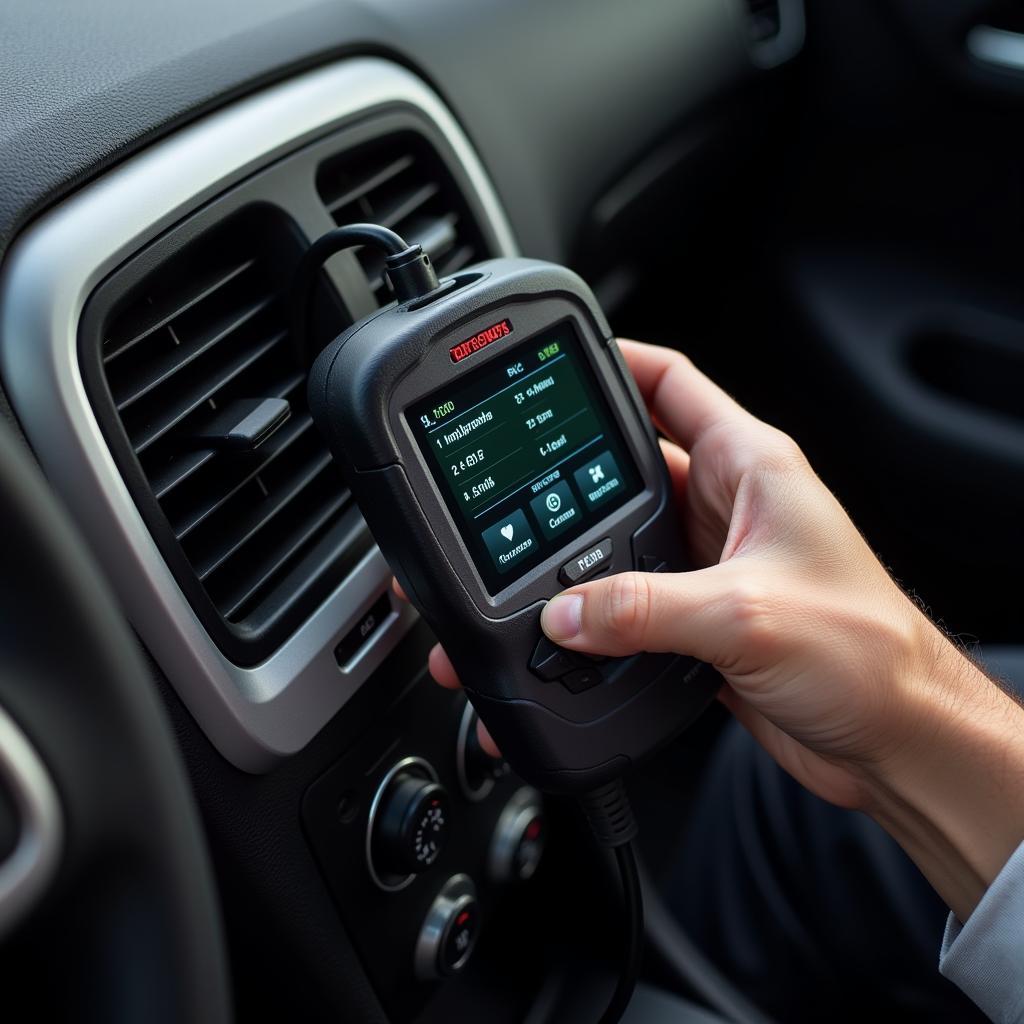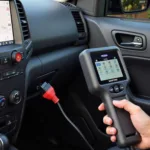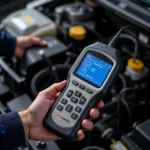Experiencing connectivity issues with your OBD2 scanner and vehicle? You’re not alone. “OBD2 not connected to PCU” is a common issue faced by car owners and mechanics alike. This frustrating problem can prevent you from accessing vital vehicle data and diagnosing potential problems.
This comprehensive guide delves into the possible causes of why your OBD2 scanner might not be connecting to the Powertrain Control Unit (PCU), also known as the Engine Control Unit (ECU), and provides practical solutions to get you back on track.
Understanding the OBD2-PCU Connection
Before we dive into troubleshooting, let’s understand how the OBD2 system communicates with the PCU. The OBD2 port, usually located under the driver’s side dashboard, acts as the gateway to your vehicle’s computer system. When you plug in an OBD2 scanner, it attempts to establish communication with the PCU, requesting data from various sensors and systems. This data is then displayed on the scanner, providing insights into your vehicle’s health and performance.
Common Causes of OBD2 Not Connecting to PCU
Several factors can disrupt the connection between your OBD2 scanner and the PCU:
- Loose or Damaged OBD2 Connector: A loose or damaged connection at either the scanner or the vehicle’s OBD2 port can interrupt communication.
- Blown OBD2 Fuse: The OBD2 system is typically protected by a fuse. A blown fuse can completely cut off power to the OBD2 port.
- Faulty OBD2 Scanner: A malfunctioning OBD2 scanner can fail to establish a connection.
- Software or Compatibility Issues: An outdated scanner or software incompatibility between the scanner and your vehicle’s PCU can lead to connectivity problems.
- PCU Problems: In rare cases, a faulty PCU can cause communication issues.
Troubleshooting Steps for OBD2 Connection Issues
If your OBD2 scanner isn’t connecting to the PCU, follow these troubleshooting steps:
- Check the OBD2 Connector: Inspect both the scanner’s connector and the vehicle’s OBD2 port for any bent or damaged pins. Ensure the scanner is securely plugged in.
- Check the OBD2 Fuse: Consult your vehicle’s owner’s manual to locate the OBD2 fuse. Inspect the fuse for any signs of damage or a broken connection. Replace the fuse if necessary.
- Test with a Different OBD2 Scanner: If possible, try connecting a different OBD2 scanner to your vehicle. This can help determine if the issue lies with the scanner or the vehicle.
- Verify Software Compatibility: Ensure your OBD2 scanner and its software are compatible with your vehicle’s make, model, and year. Check the manufacturer’s website for any software updates or compatibility information.
- Consult a Mechanic: If the problem persists, it’s best to consult a qualified mechanic. They can diagnose the issue with specialized equipment and address any underlying problems with your vehicle’s electrical system or PCU.
Conclusion
A functioning OBD2 connection is crucial for understanding your vehicle’s health and diagnosing potential issues. By understanding the common causes of OBD2 connectivity problems and following the troubleshooting steps outlined above, you can often resolve the “OBD2 not connected to PCU” issue and get back to accessing your vehicle’s vital data.
Remember, if you’re unsure about any step or the problem persists, it’s always best to consult a qualified mechanic for professional assistance.
Frequently Asked Questions (FAQs)
1. Why is my OBD2 scanner not connecting?
Several factors can cause this, including a loose connection, a blown fuse, a faulty scanner, software incompatibility, or even PCU problems.
2. How do I know if my OBD2 fuse is blown?
Visually inspect the fuse for a broken wire or use a multimeter to test for continuity.
3. Can I drive my car if the OBD2 scanner is not connecting?
Yes, you can usually drive your car even if the OBD2 scanner is not connecting. However, it’s essential to address the underlying issue to ensure proper vehicle diagnostics in the future.
4. Do I need to disconnect the battery before replacing the OBD2 fuse?
It’s generally a good practice to disconnect the negative terminal of your car battery before handling any fuses.
5. What if I’ve tried everything and the OBD2 scanner still won’t connect?
If troubleshooting steps don’t resolve the issue, consult a qualified mechanic for further diagnosis and assistance.


